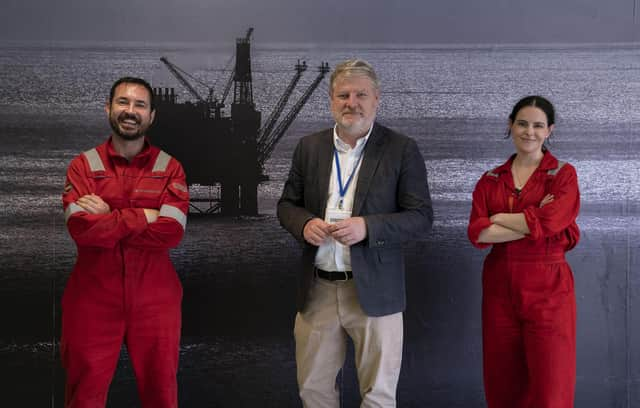The boom in the Scottish screen sector is a huge success story and will provide big opportunities - Angus Robertson


It is fantastic news though perhaps of little surprise to all who have seen many of the global hit productions such as the Amazon series The Rig, with Ian Glen, Emily Hampshire and Martin Compston; the Amazon series Good Omens with David Tennant and Michael Sheen; Apple TV period drama Debutante; Outlander; Guilt and Crime, and many more.
A new ‘Economic Value of the Screen Sector in Scotland in 2021’ report gives us many positive findings and outlines an upward trajectory for levels of employment in the industry and how much value by the screen sector is added to Scotland’s economy.
Advertisement
Hide AdAdvertisement
Hide AdIn total, an estimated £617.4 million was spent on the production of film, TV and other audiovisual content in Scotland in 2021, compared to £398.6 million in 2019, an increase of 55 per cent.
The report highlights the massive increase in global interest in Scotland as a location in which to create film and television productions. Indeed, inward film and TV production increased by 110 per cent, from £165.3 million in 2019 to £347.4 million in 2021.
Since 2018, Screen Scotland and the Scottish Government have worked strategically to help deliver much of the capacity necessary to meet the increase in demand. The support for opening new or expanded studio facilities, particularly FirstStage Studios in Edinburgh and The Pyramids in West Lothian, enabled Amazon to film their entire productions in Scotland, filming on location and inside each studio. These studio facilities are something special, and have made Scotland an even more attractive place to film, and their creation has been fantastic example of public and private sector working together.
In the past many Scots have had to go elsewhere to work in the TV and film industry, and production companies were not able to make productions solely based in Scotland. Today, however, the growth in confidence in Scotland’s sector means opportunities are in abundance. There are nearly 40 per cent more jobs in the sector in 2021 compared to 2019. This is in large part thanks to the investment in skills development work by Screen Scotland in partnership with broadcasters, video-on-demand (VOD) platforms and production companies, and emphasis placed on improving working conditions in the industry.
Advertisement
Hide AdAdvertisement
Hide AdIt is important to remember that this growth has occurred despite the immense challenges to production posed by the coronavirus pandemic. Ensuring safe working environments with distancing and cleaning protocols made production much more difficult. The wide range of brilliant shows created during this time is a testament to the world-class production talent that exists in Scotland.
Despite the unfortunate folding of its previous owners, Scotland’s International Film Festival was back with a bang in recent weeks thanks to Screen Scotland, with 24 feature films; 5 global premiers; a range of short films; and other industry events nearly all sold out.
Undoubtedly, the industry has continued to expand since the period this report examines, and we should be hugely excited that Scotland will play an ever more significant role in production of the TV and cinema we all love. The boom in the Scottish screen sector is a massive success story and will provide huge opportunities for the current and next generation of filmmakers, writers, performers, crew and wider industry.